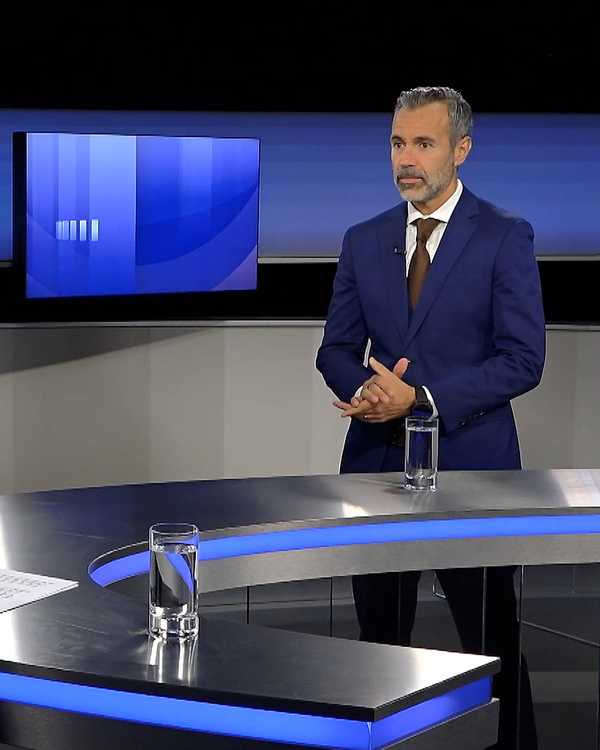Equity markets – is the momentum now breaking?
After a bull market lasting several weeks, the stock markets have now started to crack in August. We expect further price erosion.

Following 18 strong summer weeks, the stock markets corrected by 5% in August. China in particular created uncertainty due to weak economic data and payment problems with the mighty real estate developer Country Garden.
The declining price momentum has also left its mark on investor sentiment, which is now no longer quite as euphoric. However, as economic data in the US was once again better than anticipated, bond yields rose again and are at a 15-year high.
US consumption will probably not last
The markets are now increasingly hoping for a soft landing. In particular, US consumers are supporting the global economy with their consumer sentiment. Overseas, however, purse strings are no longer as loose as the August figures on consumer confidence in the US show. This declined surprisingly sharply due to persistent inflation concerns. We also doubt the permanence of consumption for the following, non-exhaustive reasons:
- Despite the strong labour market, the available budget is dwindling, for example due to higher borrowing costs.
- Early-cycle companies are increasingly warning about negative sales figures.
- Company bankruptcies in the US as well as defaults on loans are on the rise.
The headwind may have taken longer than expected, but it is gaining strength. We therefore remain underweight in equities and prefer US Treasuries where the interest rate cycle is advanced. The final interest rate hikes by the ECB and the SNB are now likely to follow in September, which could also mean the end of the strength of the Swiss franc and the start of a more robust US dollar. We have once again expanded our currency speculation.
How do we currently assess the financial markets and how are we positioned?

- The supportive base effects are now slowly receding and the decline in inflation in the US is likely to end soon.
- Inflation risks have not yet been averted due to the rising oil price, the still very tight labour market and the high level of government debt.
- This rise in price levels has not yet been discounted in the rise in inflation-protected US Treasuries. We are therefore expanding our position once again.

- With a price-earnings ratio (P/E) of ten, global energy companies are historically cheap and therefore only half as expensive as the S&P 500 with a P/E of 20.
- Earnings are enormous with an oil price of USD 80, while the profit margins of Shell, Total and BP among the refineries, for example, are currently around 20 percent.
- After a weak start to the year, energy stocks are picking up speed again. We are using this momentum and expanding our holdings.

- After emerging market equities returned around three percentage points more than global equities in July, the lead was lost again in August due to the problems in China.
- The broadening housing crisis in China has once again diminished investor confidence, thereby overshadowing some good company news such as from Baidu (+15 percent turnover, earnings per share (EPS) significantly higher than anticipated).
- Our hope that the government will approve considerable stimuli has so far only been realised in small steps (interest rate cuts, easing of restrictions on home purchases, lending and reduction of stamp duty).
- In addition to China, previous outperformers such as Brazil are now also trading lower. For this reason, we already closed our overweight in emerging market equities during the month.
Tactical Asset Allocation in September 2023



